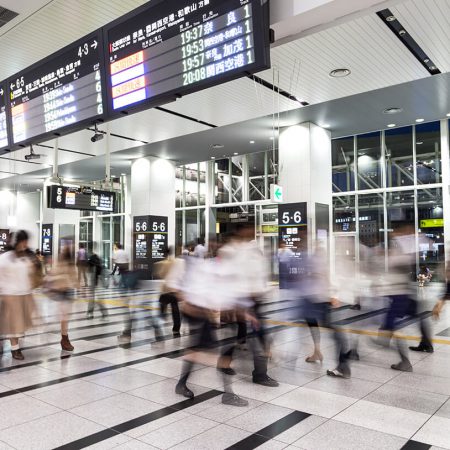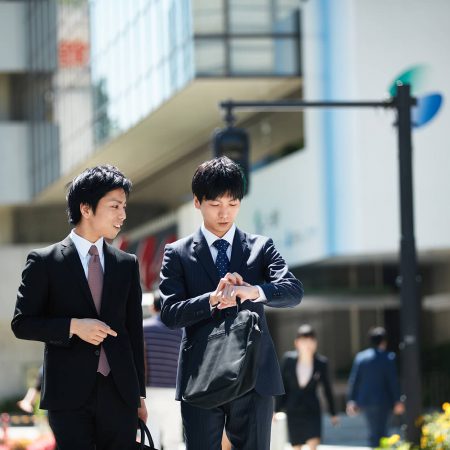Useful Phrases in Japanese Job Interviews to Help You Sound Like a Native Speaker

There is a multitude of steps in preparing for a job interview but taking note of basic preparations such as practicing how to display proper behavior and courtesy, simulating answering interview questions, and confidence-boosting by way of choosing the attire for the interview will most definitely be helpful in your goal of landing a job.
However, if you are a foreigner who’s trying to nail an interview in a new country like Japan, then you should prioritize on impressing your soon-to-be employers first.
What better way to dazzle the interviewees than by showing mastery and knowledge in the local tongue? Memorizing and familiarizing yourself with helpful Japanese phrases could be the key factor in separating yourself from the rest of the other applicants.
In this article, we’ll be providing you some useful phrases that will help you ace interviews and lead you one step closer to employment in the Land of the Rising Sun.
Table of contents
- “Kyo wa o-jikan o itadaki, arigato gozaimasu.” (Thank you for taking the time to meet with me today.)
- “Kore made no jisseki o matometa shiryo o jisan shimashita. Kochira desu.” (I’ve brought my portfolio if you’d like to see it.)
- “Nihongo ga jotatsu suru yo doryoku o tsudukete mairimasu.” (I’m ready and willing to improve my Japanese.)
- “Oshigoto o oboeru no wa hayai houda to omoimasu.” (I’m a quick learner.)
- “Kono Bun-ya nara, houhu na keiken ga arimasu.” (I have a lot of experience in this field.)
- “Ima sugu, hajimeraremasu.” (I can start immediately.)
- “Tomen wa Nihon ni iru tsumori desu.” (I plan to live in Japan for the next several years.)
- Conclusion
“Kyo wa o-jikan o itadaki, arigato gozaimasu.”
(Thank you for taking the time to meet with me today.)
In any kind of interview, applicants should always express their gratitude towards the company that they are applying for. The concepts of gratefulness and humility exist in practically every facet of Japanese culture and language, so showing how thankful you are can come a very long way.
Imagine this: you and another applicant are vying for the same position. Both of you have similar skills and experience, and the two of you have been impressive all throughout the interview stage.
Now imagine that a few days later, you have just been informed that you weren’t given the nod. You find out that it is because the other applicant managed to express gratitude and you were not able to do the same. This minor detail changed the entire outcome of your application.
Regardless of being hired or not, you should always show appreciation. These companies have taken the time and have given the effort of meeting with you for an interview, the least you could do is be thankful for the opportunity.
“Kore made no jisseki o matometa shiryo o jisan shimashita. Kochira desu.”
(I’ve brought my portfolio if you’d like to see it.)
There’s more than a 100% probability that the interviewer is going to ask for your portfolio and resume, so learning this phrase is going to be helpful. You could utter this line before the start of the interview to set the impression that you are indeed prepared.
Another way this line could be useful is when the company asks you about your qualifications. Instead of immediately enumerating your skills, accomplishments, and experience, you could use this line to let them know that you are about to give out copies of your portfolio. Handing out copies without permission could be viewed as rude.
“Nihongo ga jotatsu suru yo doryoku o tsudukete mairimasu.”
(I’m ready and willing to improve my Japanese.)
If you’re reading this article, chances are your skills in the Japanese language are basic. If the interviewer notices your difficulty in communicating and brings this up with you, you should respond by using this phrase.
Aside from the fact that you are basically telling them that you are willing to learn the Japanese language, using this line also means that you have taken measures in being knowledgeable in the local language.
“Oshigoto o oboeru no wa hayai houda to omoimasu.”
(I’m a quick learner.)
This could possibly go with the previous phrase, as the interviewer could ask you how soon can you learn Japanese. Using this line will give the interviewer a sense of assurance that you are not only going to be studying the language, but you are also going to do it efficiently.
This line could also be used if they ask you to do things that you are unfamiliar with. For example, if you specialize in a particular field but they also need someone who is proficient in another aspect of the job, you could use this phrase to inform them that you will try to master this in the long run.
“Kono Bun-ya nara, houhu na keiken ga arimasu.”
(I have a lot of experience in this field.)
Experience is one of, if not, the biggest component that companies are seeking from aspirants. Experience tells companies if the applicants are ready or are yet to be trained, how many years they have been practicing under this field, and which companies they have offered their services to.
By utilizing this phrase, you will certify the interviewer that not only are you up for consideration because you are a great candidate but you are also an experienced one as well.
“Ima sugu, hajimeraremasu.”
(I can start immediately.)
Most Japanese companies prefer if hired applicants can start working as soon as possible. Availability is important because these companies and businesses want to utilize the talents and abilities that they are in need of immediately.
This line also tells companies that you have completed requirements like visa, certificate of eligibility, residence cards, and all other requirements. So, they don’t need to worry about processing those for you.
“Tomen wa Nihon ni iru tsumori desu.”
(I plan to live in Japan for the next several years.)
Loyalty, dedication, and commitment are all incredibly vital for Japanese companies. Citizens from the Land of the Rising Sun have been known throughout the entire world for their hardworking and passionate approach to work.
Saying this phrase will be music to any Japanese interviewer’s ears, as this guarantees them that you are in it for the long haul and are committed enough that you have already considered living permanently in the country.
Conclusion
These phrases will surely help you in your quest for employment in Japan. Prepare to master and recite these lines and you’ll most likely impress any interviewer and any company.
We hope this article will help you with your interview in the near future. Good luck!
Motto Japan, the community platform to support foreigners with the foundation for life in Japan, including Japanese study, job opportunities, and housing service. Motto Japan Media will provide a wide variety of information for Japanese fans all over the world, to create a cross-cultural environment and enrich the life of foreign residents in Japan!













Leave a Reply